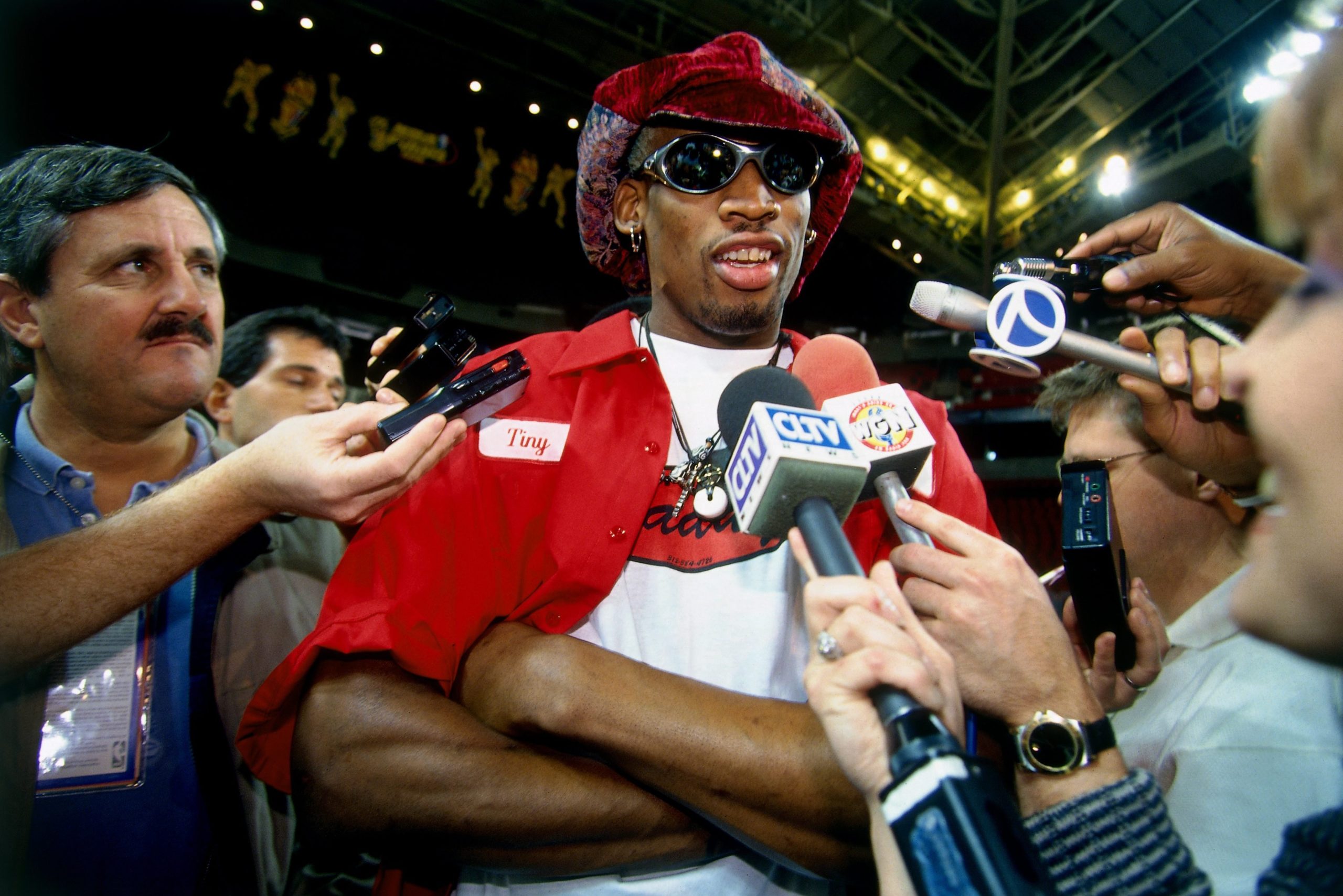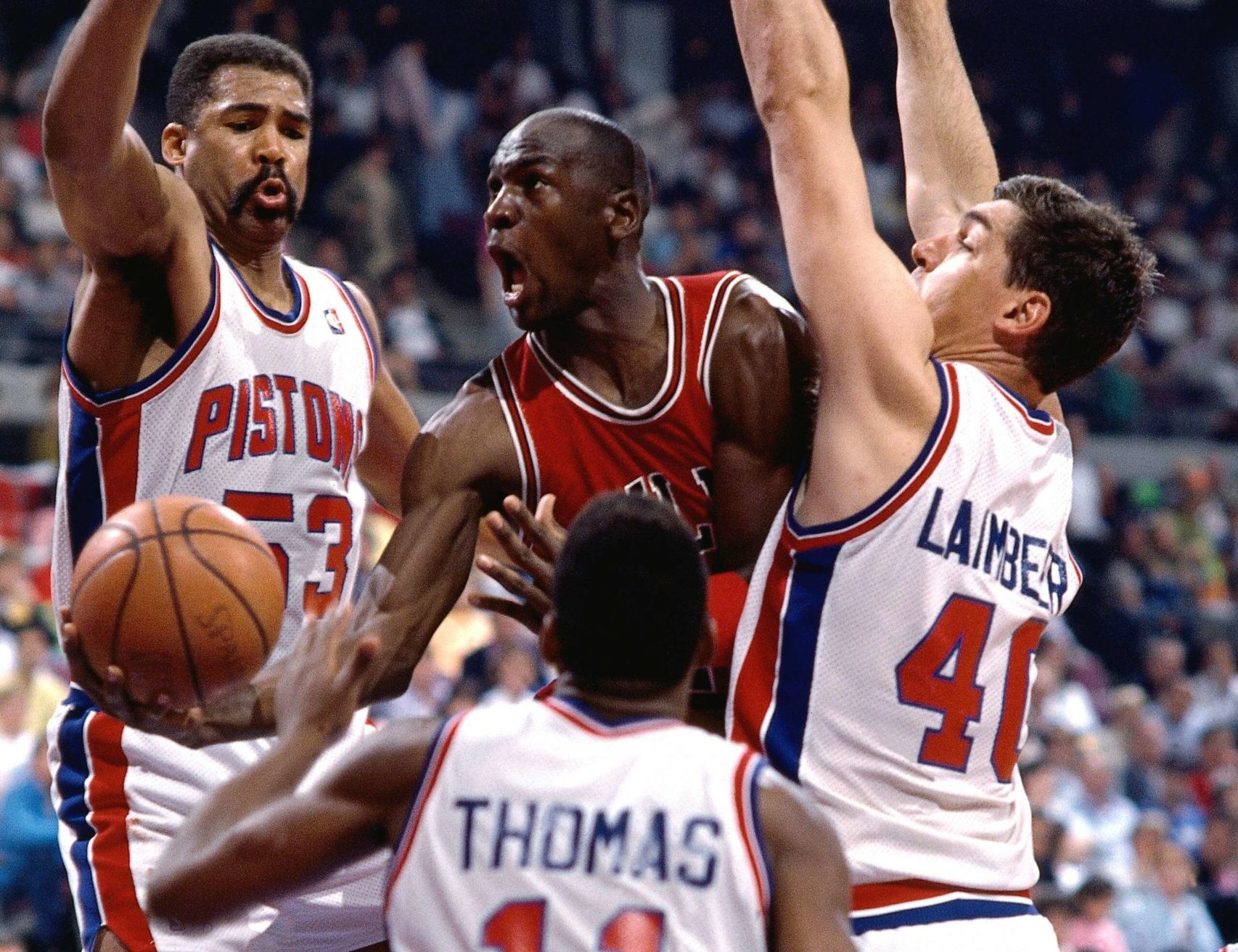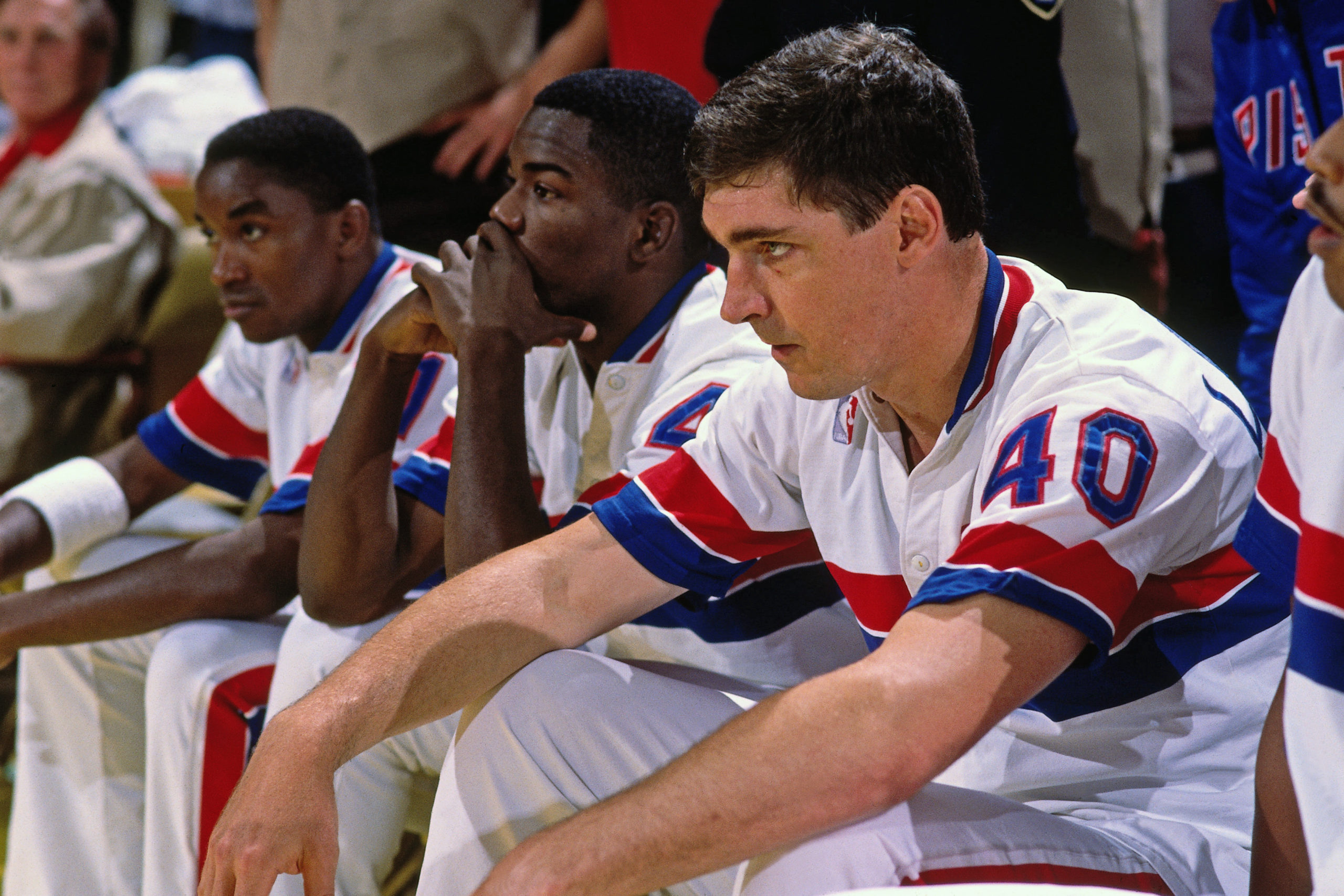Bad Boys for life

FILE – Dennis Rodman #91 of the Chicago Bulls talks with the media before playing the Seattle SuperSonics in Game Five of the 1996 NBA Finals at Key Arena on June 14, 1996 in Seattle, Washington. The Sonics won 89-78. Copyright 1996 NBAE (Photo by Jeff Reinking/NBAE via Getty Images)
“You got the great Michael Jordan, the great Scottie Pippen, the great Phil Jackson, but if you take me away from this team, do they still win the championship?”
Dennis Rodman asks this question early in the third episode of “The Last Dance,” the 10-hour documentary that follows the Chicago Bulls’ tumultuously triumphant 1997-98 NBA season.
After a successful opener viewed by an average of 6.1 million viewers last week, Netflix will drop two new episodes anew on Monday, with both of them covering the enigmatic and polarizing Rodman. The new episodes will cover a lot of ground on the former top rebounder of the NBA, whose tattoos, love affairs and brazen behavior were tabloid fodder in the 90s—including a bizarre incident featuring Rodman, Michael Jordan and actress Carmen Electra in hotel room.
It will also feature the dramatic duels against Cleveland, a classic trash-talking anecdote featuring Jordan, writer Sam Smith and the guys at press row and highlights of the Bulls’ first title.
But what should catch a lot of attention of basketball geeks is when the show detours into Michigan to take on the “Bad Boys” of the NBA, the Detroit Pistons.
And that pivot tackles the infamous Jordan Rules, a defensive scheme designed to ground the young Chicago superstar—sometimes too literally.

Michael Jordan #23 of the Chicago Bulls drives to basket against the Detroit Pistons during the 1989 season NBA game in Detroit, Michigan. Copyright 1989 NBAE (Photo by Andrew D. Bernstein/NBAE via Getty Images)
“The Detroit Pistons were the epitome of the physical, tough, hard-nosed brand of half-court basketball,” said basketball Hall of Famer Rod Thorn, the former Bulls GM who drafted Jordan in 1984, during an interview in the documentary. “They had big strong guys in [Bill] Laimbeer, [Rick] Mahorn, Rodman, [John] Salley. They had a great defensive player in Joe Dumars, they had Isiah Thomas.”
“We weren’t the league favorites … We weren’t the pretty team that got invited to the Lakers’ and Celtics’ party. When we showed up, it was almost like we were crashing their party,” Thomas said.
The Pistons were the Eastern Conference’s bullies in the late 80s, after they had ended the Boston Celtics’ reign there. The Bulls, meanwhile, were on the rise with Jordan at the helm. But there was room on the top for just one team and Detroit was dead set on staying there.
“Detroit had ‘Jordan Rules’ just for Michael,” said James Worthy. “I don’t know how he came out of it alive.”
Worthy was one of the people interviewed about the Detroit defense on Jordan, along with Rodman, Thomas, former Pistons assistant coach Brendan Malone and former Pistons forward John Salley.
“At that time in the NBA, you could do anything you want … Back then, you could just sit there and just literally beat people up and get away with it without a technical or anything,” Rodman, who was part of that deep Detroit core, said. “We were trying to physically hurt Michael.”
Malone went into detail about what exactly the Jordan Rules were on the show. And basketball nerds will enjoy the coach-speak. But the Pistons knew that Jordan would somehow find a way to negate the defensive traps Detroit would spring on him. So they always had a fail-safe.
“[T]hat’s when Laimbeer and Mahorn would knock him to the ground,” Malone said.
Detroit wanted to make Jordan aware of what was in store if he dared invade the shaded area.
“You have to stop him before he takes flight cause, you know, he’s not human,” said Salley.
“We knew Michael Jordan’s the greatest player … We had to do everything from a physicality standpoint to stop him,” said Thomas. “When he was in the air, we had no shot. But when everything was on the floor, you can hold him down.”
And the Jordan who couldn’t overcome the Pistons still wasn’t the 90s Jordan who could draw superstar calls from the refs.
“The referees back then didn’t look to see if Michael [Jordan] was hurt or not. It wasn’t ‘make sure the savior is okay’ … That wasn’t the way it is,” said Salley.

Isiah Thomas #11, Joe Dumars #4 and Bill Laimbeer #40 of the Detroit Pistons sit on the bench during Game Five of the 1988 NBA Finals on June 16, 1988 at the Great Western Forum in Inglewood, California. Copyright 1988 NBAE (Photo by Andrew D. Bernstein/NBAE via Getty Images)
The latest episodes will delve into the animosity and acrimony between the Bulls and the Pistons, and conspiracy theorists might point to the rivalry as the seed of the supposed Dream Team feud between Jordan and Thomas.
Jordan, especially, wasn’t exactly bashful about his feelings for Detroit.
“Oh I hated them. Yeah, the hate carries even to this day,” he said.
In the end, though, Jordan earned the respect of his foes. And Rodman best explained why.
“I could compare Michael Jordan to nobody because for him to survive that and still maintain that greatness, I mean it’s very unparalleled,” he said. INQ
